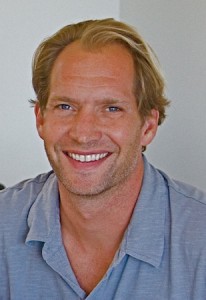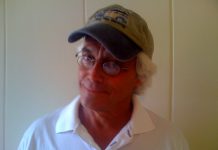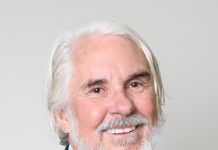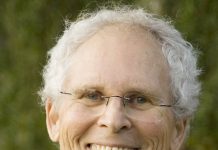“Recognition should come to the reporter who uncovers public cheating or proves a convicted man innocent.” —Phil Donahue
 Last week, I saw a Facebook post from Maurice Possley, or “Mo” as I call him, a good friend that moved to Laguna Beach in 2009. He was writing about the exoneration of a death row inmate in Louisiana and his work with him. As we have Proposition 34 on the ballot this fall to end the death penalty in California, I thought Mo deserved a little recognition.
Last week, I saw a Facebook post from Maurice Possley, or “Mo” as I call him, a good friend that moved to Laguna Beach in 2009. He was writing about the exoneration of a death row inmate in Louisiana and his work with him. As we have Proposition 34 on the ballot this fall to end the death penalty in California, I thought Mo deserved a little recognition.
This is what Mo had written as a status update last week:
“One of the birthday reminders that came up today on my FB page was for John Thompson. He was on Death Row in Louisiana for 14 years. If it weren’t for the discovery that prosecutors hid evidence of his innocence that led to his exoneration, I wonder if he would be alive to send a Happy Birthday wish. He’s no longer a dead man walking. He’s running a re-entry into society program for inmates released from prison. It’s called Resurrection After Exoneration. If you’re looking for a place to drop a buck or two, you can’t go wrong.”
Hard to imagine what spending 14 years on death row as an innocent man would do to somebody. It’s stunning to see a man decide that justice is best served by helping others in similar situations recalibrate for life outside prison.
Mo and his wife Cathleen Falsani are journalists and authors. In July 2009, after Mo won a Pulitzer for his investigative journalism at the Chicago Tribune, they moved to Laguna Beach with their newly adopted son, Vasco, from Malawi.
I’ve known Cath since college where we served on the school paper as editors together, and encouraged them to retrench as their world changed. Mo left the Tribune and took a job first with the Northern California Innocence Project at Santa Clara University. He is now with The National Registry of Exonerations, the largest database of exonerations for wrongfully convicted felons, some of whom were on death row.
The database is a joint project of the University of Michigan and Northwestern Law Schools. It contains more than 960 exonerations to date and should have over 1,000 by the end of this year, representing more than 10,000 years served by innocent people in state and federal penitentiaries. It serves to help correct problems in the criminal justice system.
Spending a little time at http://www.exonerationregistry.org is eye-opening.
One of the most significant cases is Anthony Porter’s who was almost wrongfully executed in Illinois—his family had already bought the suit to bury him in. In that case, Northwestern University Law students and one of their professors fought to set him free.
This is what then-Gov. George Ryan said when he later addressed Northwestern Law students:
“I never intended to be an activist on this issue. I watched in surprise as freed death row inmate Anthony Porter was released from jail. A free man, he ran into the arms of Northwestern Prof. Dave Protess who poured his heart and soul into proving Porter’s innocence with his journalism students.
He was 48 hours away from being wheeled into the execution chamber where the state would kill him.
It would all be so antiseptic and most of us would not have even paused, except that Anthony Porter was innocent of the double murder for which he had been condemned to die.
After Mr. Porter’s case there was the report by Chicago Tribune reporters Steve Mills and Ken Armstrong documenting the systemic failures of our capital punishment system. Half of the nearly 300 capital cases in Illinois had been reversed for a new trial or resentencing.
“Nearly half!”
Ryan went on to point out that Europe (including Russia), Canada, Mexico and most of Central and South American countries have stopped or called a moratorium on the death penalty.
In 2000, Ryan declared a moratorium on further executions. In 2011, the death penalty was abolished in Illinois.
In 2012, California has the largest population of death row inmates in the country—more than 700.
We are fortunate to have experts in exoneration here in Laguna. It’s time to end the death penalty in California.
David Vanderveen is a Laguna Beach resident, husband, father and energy drink entrepreneur. His email is [email protected].




